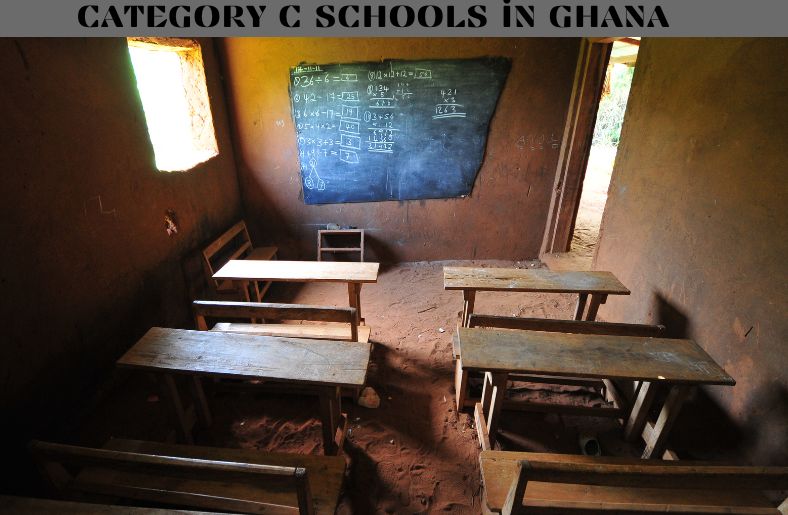Ghana is renowned for the country’s dedication to education, with the availability of a diverse array of schools to meet various academic requirements from public to private institutions· The educational ecosystem of Ghana is dynamic and changing and simply Avenuegh·Com represents a compilation of category c schools in ghana but a more detailed information is available·
Features:
- Public Schools: In Ghana, public schools are managed by the authorities and supported by them. Thus, students from lower income families can attend these schools at no cost or low cost. The schools in Ghana use their curriculum developed by the Ministry of Education and provide students with a good foundation in education. Public schools are known for their large, diverse student population giving rise to rich cultural and social environments.
- Private Schools: Schools in Ghana are privately owned and operated, and they offer an expensive more specialised training than public schools. These schools may follow the British or American curriculum, providing students with international recognition of their education. Private schools are known for their small class sizes and individualised attention.
- International Schools: Global schools in Ghana are established to accommodate expatriate families and other students seeking international training; in these schools IB / CIE curriculum is studied that prepares them for higher education abroad; international schools provide a diverse and multicultural milieu in which students are familiarised with different views and cultures.
- Vocational and Technical Schools: Agribusiness, carpentry, plumbing, and Electronics provides specialised training in a variety of trades and talents in Vocational and technical schools in Ghana, preparing students for careers in industries like agriculture. These schools offer practical skills and hands-on training, and therefore students join the labour market upon graduation with no delay.
- Special Needs Schools: Special schools in Ghana cater for students with disabilities using special-needs programmes and assistive services· The schools achieving this provide individualised schooling plans and access to specialised treatments and resources ·
Benefits of Category c schools in Ghana
- Quality Education: The task that schools in Ghana do is guiding the students to get quality education. And acquiring a robust educational background is vital to any academic program.
- Cultural Exchange: Many schools in Ghana promote cultural exchange and knowledge via their environments which help in naturalising the classroom experiences.
- Global Recognition: The international colleges in Ghana offer curricula which are IGCSE chosen world-widely, opening doorways of further learning and career opportunities abroad.
- Skills Development: The vocational and technical faculties in Ghana give practical skills which are in demand in the job markets hence, increasing students’ chances of getting employment.
Education in Ghana Faces Barriers

In Spite of trying to repair the state of education in Ghana, category C schools in ghana face a number of problems· One prominent problem is the deficiency of good infrastructure and resources especially in rural areas· Many schools lack basic facilities such as lecture rooms, textBooks and computers that make good education impossible.
Second, one has to address the issue of dropouts, especially among girls· Poverty, early marriage, and conventional ideology are some of the factors that contribute to this issue· Moreover, the shortages of teachers in category c schools in ghana and few remunerations influence the standard of teaching and learning in schools.
Innovations in Ghanaian Education
To address those demanding situations, diverse improvements have emerged in Ghanaian schooling· One such innovation is the usage of generation in the classroom· Many colleges now use computers, drugs, and net connectivity to enhance gaining knowledge of and coaching·
Another innovation is the emphasis on capabilities-based education· category c schools in ghana are incorporating practical abilities which includes entrepreneurship, coding, and vocational education into their curriculum to prepare college students for the group of workers·
Conclusion:
Category c schools in ghana offer a extensive range of tutorial options, catering to the various needs of college students· Whether you are seeking out a conventional instructional revel in or specialised vocational training, Ghana has a faculty for you· Avenuegh·Com presents a valuable aid for exploring these options, offering insights into the unique types of schools to be had· By deciding on the right college, students can embark on a journey of studying and discovery, putting the stage for a successful future.
FAQ’S About category c schools in ghana
Ans. Yes, public colleges in Ghana are in large part funded via the authorities and offer schooling to students at little to no fee· However, there can be some fees related to textbooks, uniforms, and different substances·
Ans. The main distinction among private and public faculties in Ghana lies in their possession and control· Public colleges are authorities-owned and -controlled, at the same time as non-public colleges are privately owned and managed·
Ans. No, worldwide colleges in Ghana normally follow a foreign curriculum, together with the International Baccalaureate (IB) or Cambridge International Examinations (CIE), making ready college students for in addition education overseas·
Ans. Students at vocational and technical faculties in Ghana can analyse a whole lot of competencies, inclusive of carpentry, plumbing, electronics, agriculture, and more· These schools offer palms-on education and realistic skills for the body of workers·
Ans. Yes, unique desires colleges in Ghana provide specialised training and aid services for college students with disabilities· These offerings may additionally encompass individualised education plans, specialised healing procedures, and get admission to to resources to satisfy the unique wishes of each student·
Also,Read About
